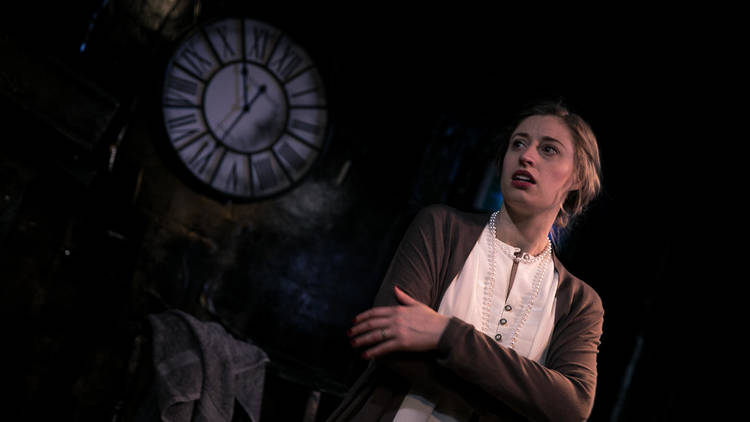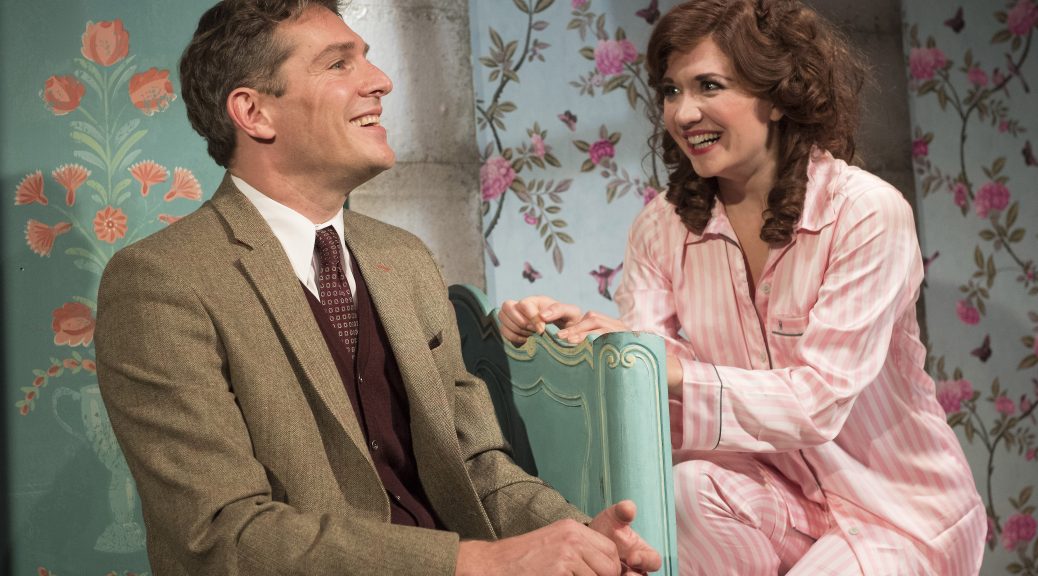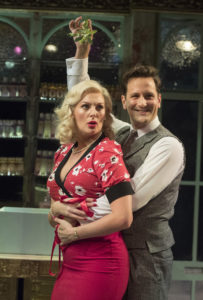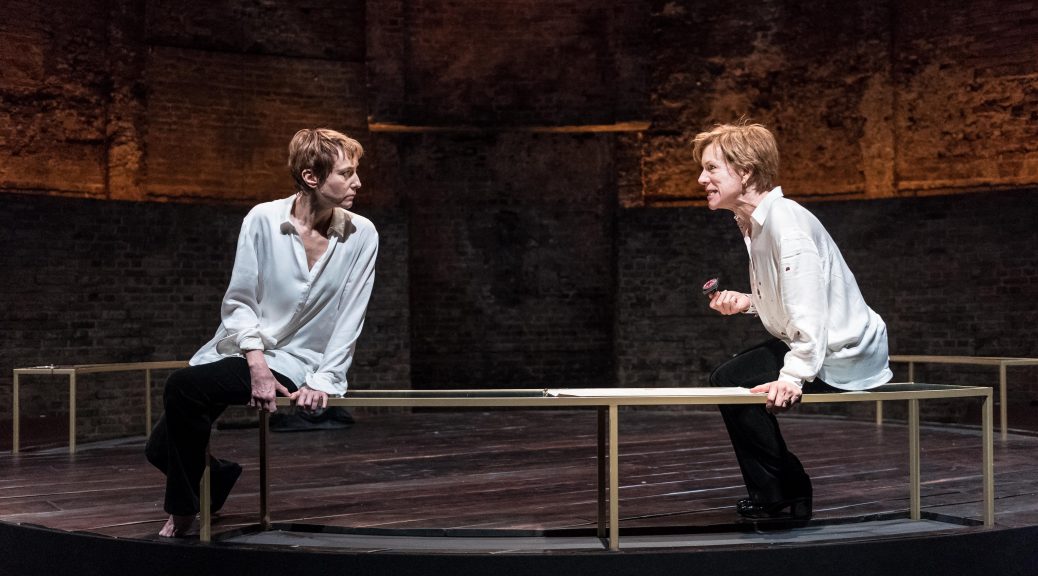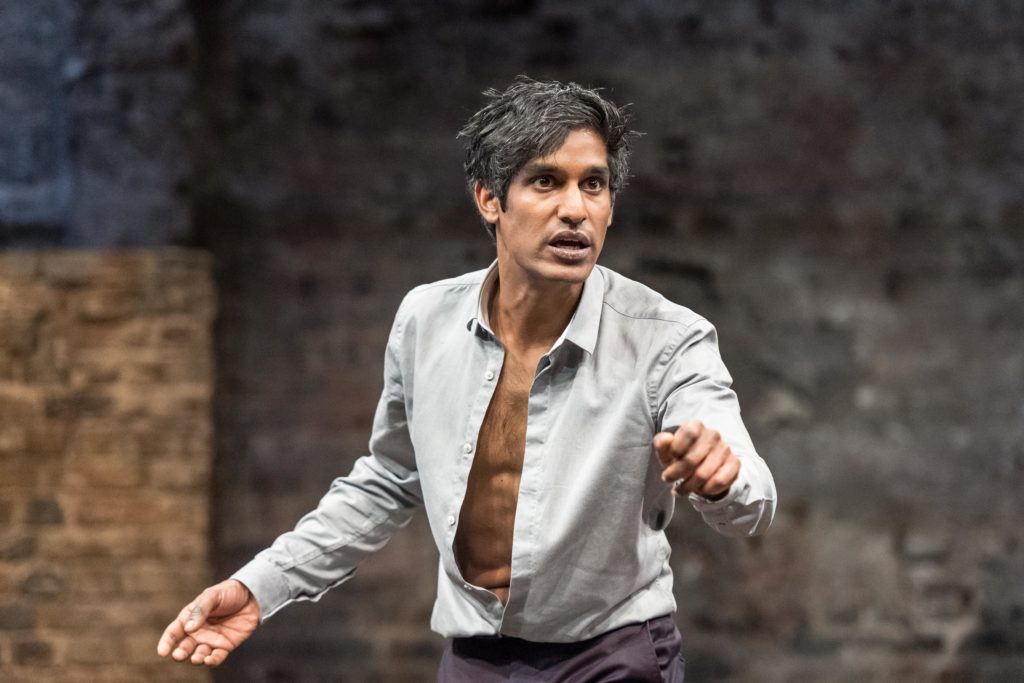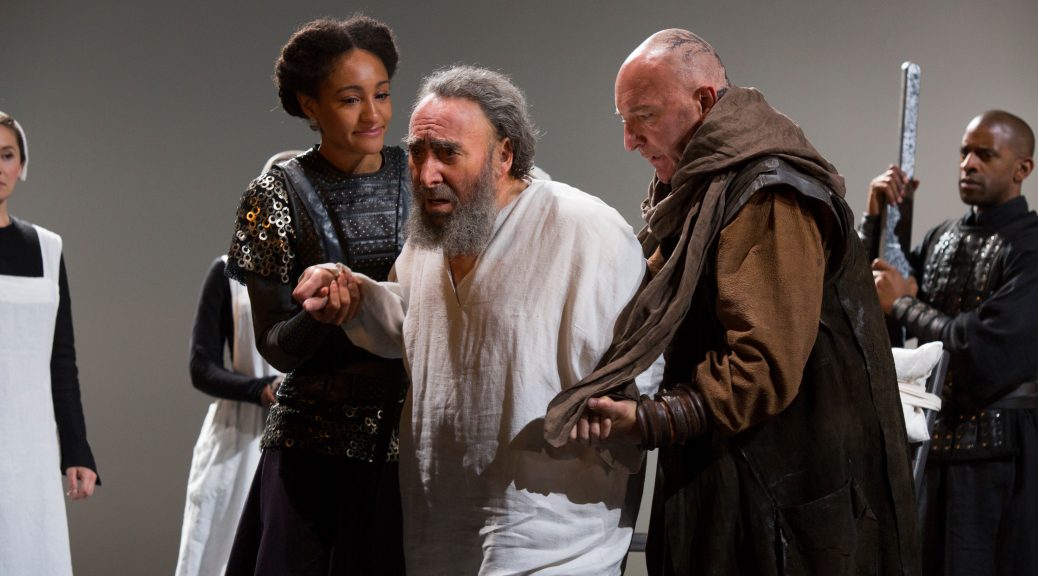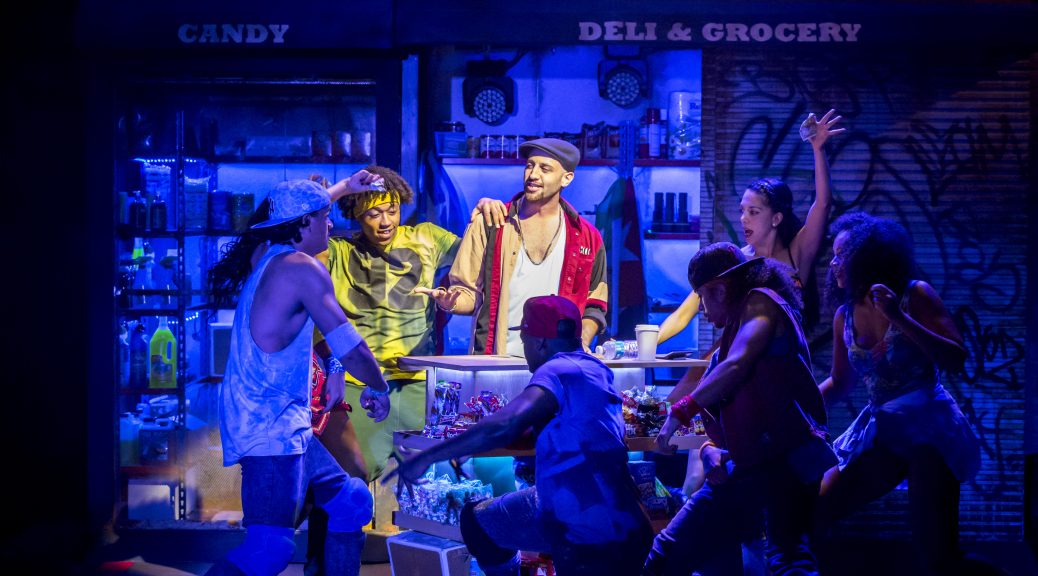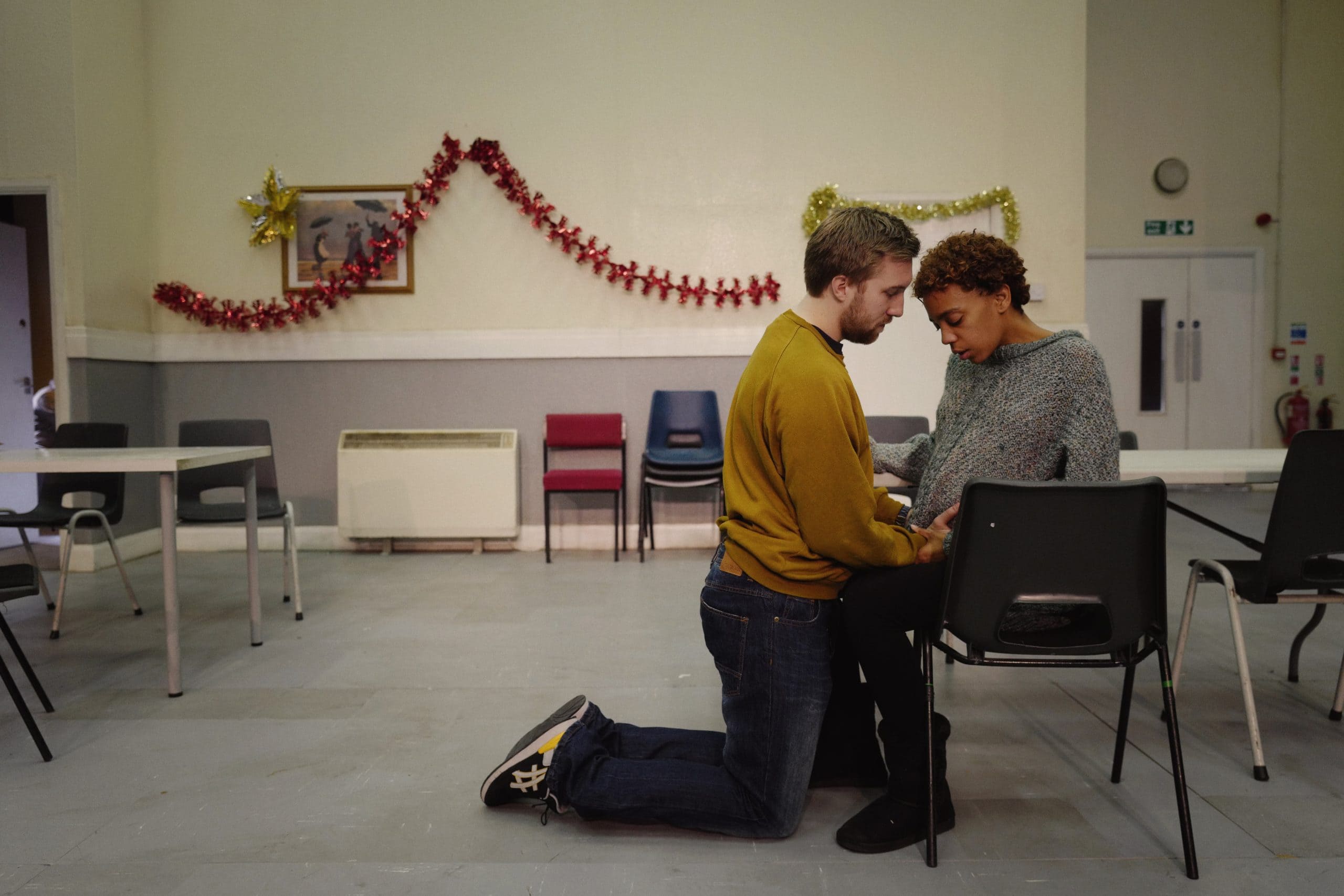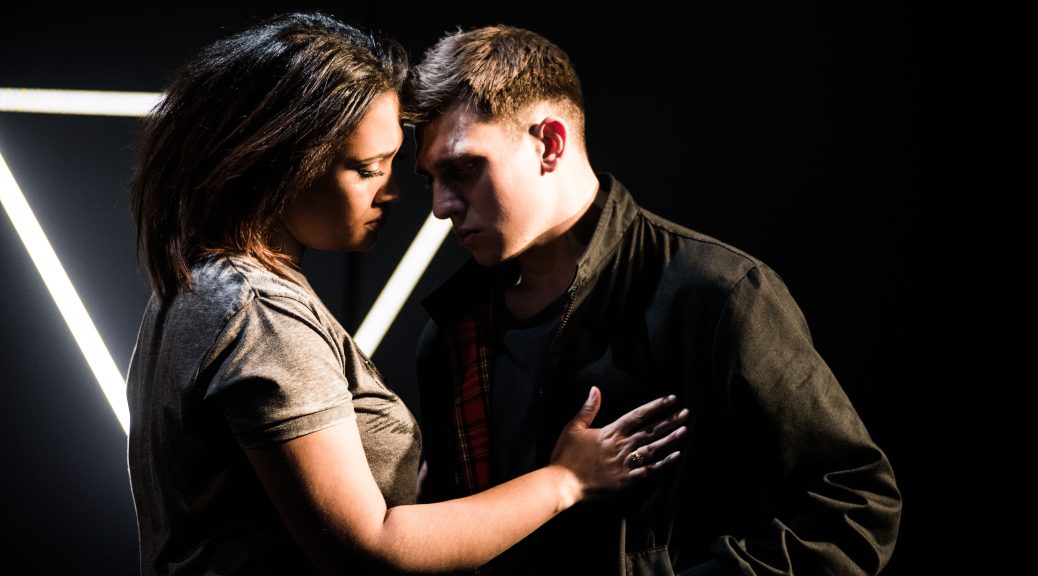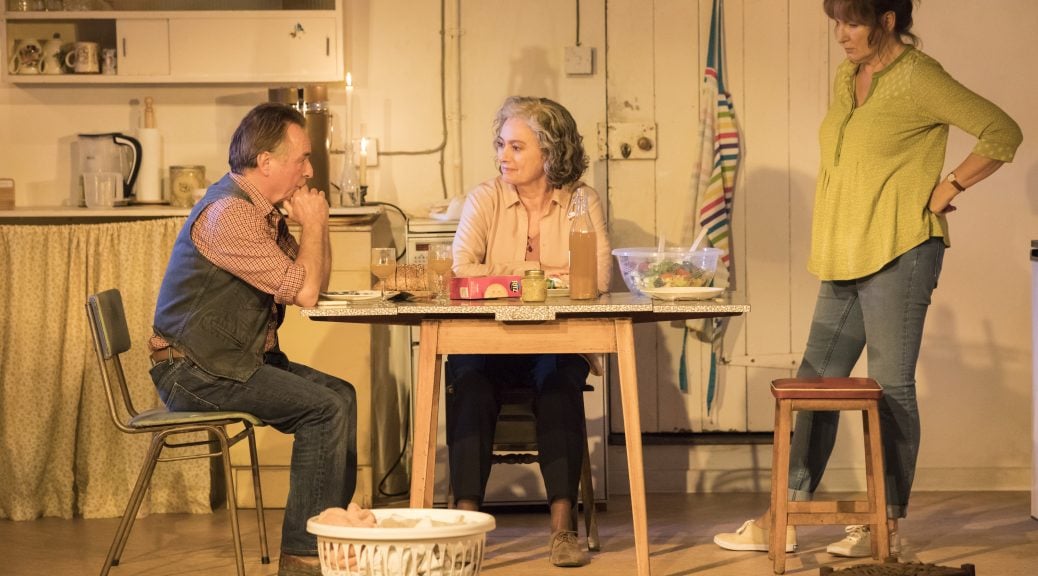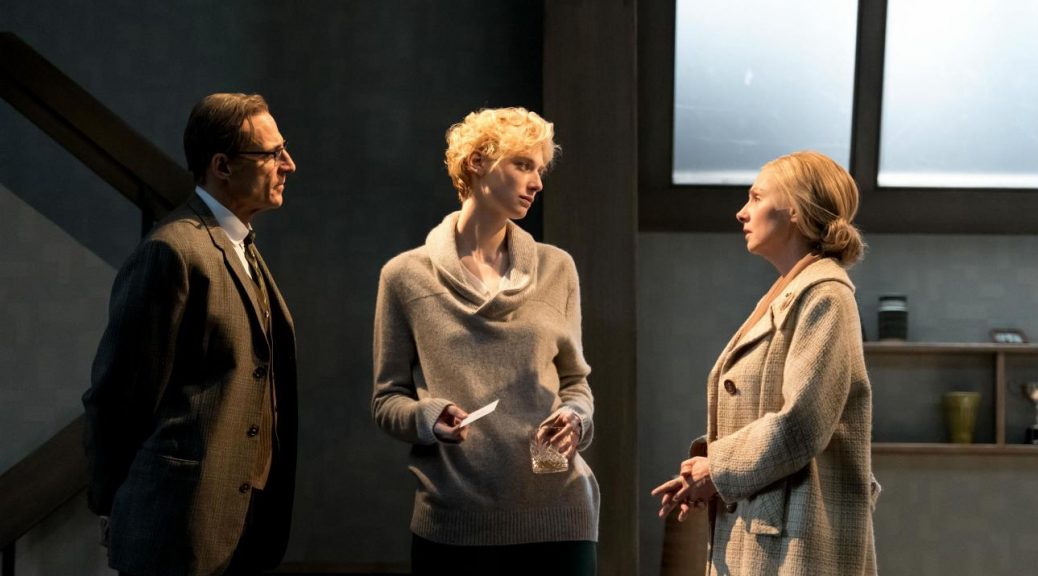A spooky story is fine Christmas fare. Plenty of the necessary ingredients for chilling spines are present in this J.B. Priestley story, with two sets of travellers seeking shelter in an isolated house on one of those dark and stormy nights. Economically adapted for the stage by Duncan Gates, the director is Stephen Whitson, and the two join forces to create two or three jump-in-your-seat moments – all the more admirable given that the raw material is a world away from Priestley’s strongest work.
Harrie Hayes, Tom Machell and Matt Maltby play three bright young things whose car breaks down as thunder claps overhead. All do well to flesh out their characters and control the humour that comes with those RP accents, though only Maltby’s role, as Roger Penderel, really has enough meat on it to allow him to shine. More thunder and more arrivals: a businessman and his chorus-girl fiancée, parts Ross Forder and Jessica Bay work hard on but are flatly written. The unwilling hosts for these travellers are just as clichéd, but here Forder, joined by Michael Sadler playing his brother and servant, gets to show off a strong transformation. A violent secret in the attic comes as a lightning flash – Priestley’s social commentary at last – as we meet Roger’s alter ego, like himself a damaged war veteran but, in this case, a dangerous one.
Benighted is especially interesting for fans (or students) of Priestley. Plenty of the playwright’s later preoccupations are nascent: social justice, class, the passage of time. The voice that we recognise as Priestley’s is present but says little that is coherent. Despite Gates’ and Whitson’s noble efforts, the characters are slim and the treatment of themes so peremptory that the show is never more than flawed fun.
Until 7 January 2017
Photo by Chris Gardner

